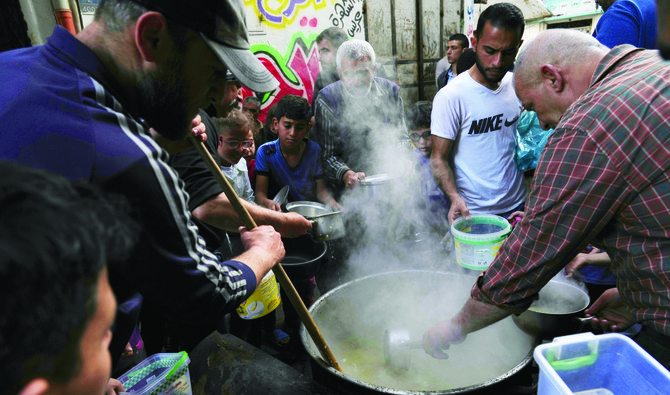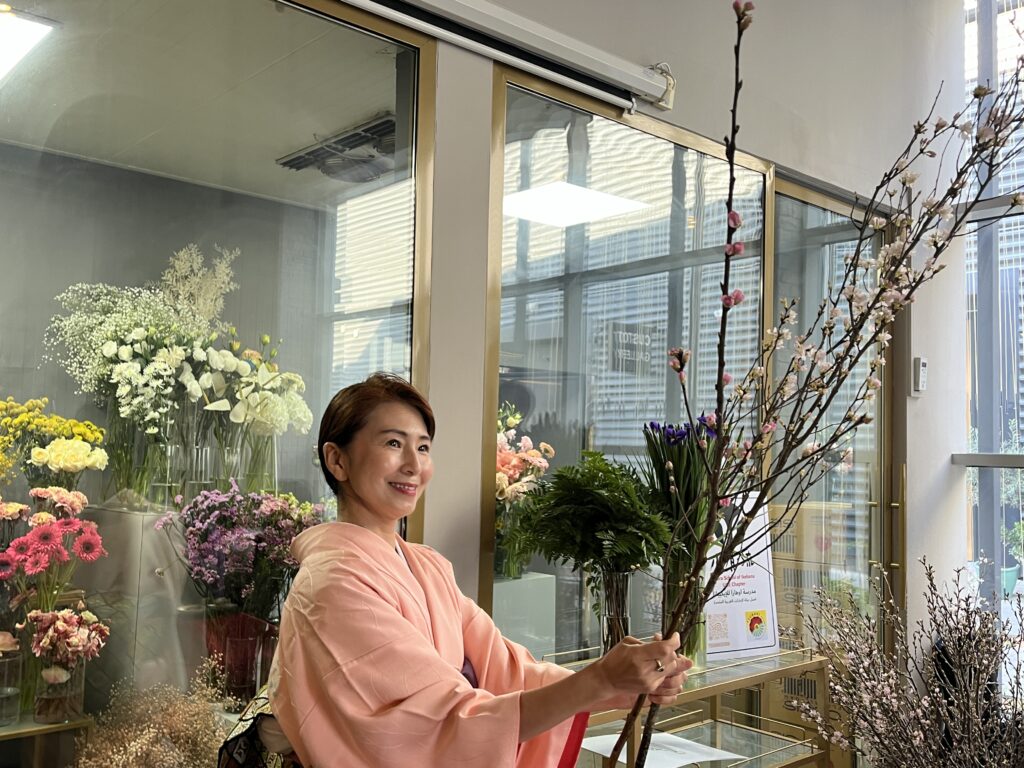Mohammed Najib
RAMALLAH: Ramadan in the Palestinian Territories is characterized by its distinctive rituals and atmosphere.
Three million Palestinians live in the West Bank and East Jerusalem, and activities during Ramadan include performing prayers in mosques — especially the Al-Aqsa mosque — visits and family meetings, performing semi-pilgrimages to Makkah in Saudi Arabia and giving charity to poor and needy families.
Ramadan this year is distinguished by being the first after the end of COVID-19 procedures and restrictions that have cast a shadow over the atmosphere and rituals of the holy month during the past three years.
Meeting family remains important and iftar meals are shared during this fasting month.
Despite the occupation and Israeli control over the city of Jerusalem, the custom of the Ramadan iftar cannon at Al-Aqsa Mosque continues. It fires every evening, marking the end of the day’s fasting and the start of the Ramadan dinner.
People consume plenty of the qatayef desert during Ramadan, while sellers of juices, tamarind, almonds, liquorice and carob are abundant, as are sellers of pickles. Meanwhile, restaurants also serve Ramadan dinner meals for those breaking their fast.
The function of “Takaya” becomes more important during the fasting month as it provides hot iftar meals for low-income families.
In the big cities, such as Ramallah, municipalities used to light the Ramadan lantern, mostly in Ramallah’s largest and most important square, attended by the governor, the mayor, local community leaders and a large crowd of citizens. The state of sadness and anger pervading the West Bank after the Israeli assassination of three young men on the first day of Ramadan on April 2 has led to no popular celebrations for the lantern lighting this year.
The Ramallah municipality said in a statement: “The lighting of the lantern at the Clock Square in the center of Ramallah will be carried out without events, in honor of the martyrs and mourning their souls.”
Despite the availability of alarms via mobile devices, the custom of Al-Musaharati continues in most of the Palestinian Territories. Young people tour neighborhoods beating drums and chanting Ramadan songs to wake people up to eat the sahoor meal. During the past two to three days of Ramadan, youths visit the houses of the neighborhoods they were in and receive a gift from the people to thank them for their efforts during Ramadan.
Worship during Ramadan is essential, especially at the Al-Aqsa mosque, and for the late evening prayer, known as the Tarawih. An hour after eating the Ramadan iftar, men and women perform prayers in mosques, some of which broadcast the prayer through loudspeakers.
Palestinians are keen to perform prayers in the Al-Aqsa Mosque. Their greatest eagerness is to perform Friday prayers during Ramadan — thousands of men and women flock from all over the West Bank to perform these prayers at the mosque. It is unclear whether the Israeli authorities will place restrictions on their access to Al-Aqsa due to the security escalation in the Palestinian Territories.
West Bank Palestinians, who frequently visit East Jerusalem and Al-Aqsa Mosque during the month of Ramadan, boost the economy of the Old City by shopping at its markets. The owners of these stores await this season throughout the year.
After stopping the performing of semi-pilgrimages for nearly three years due to the COVID-19 epidemic, Umrah trips have resumed from the West Bank and Gaza Strip to Makkah Al-Mukarramah and Al-Madinah Al Munawwarah. The Umrah registration offices are witnessing a good turnout, especially for the scheduled Umrah in Ramadan.
Sameh Jbara, owner of the Hajj and Umrah company in the West Bank, told Arab News that Palestinians were demanding to perform Umrah in Ramadan this year after a two-and-a-half-year hiatus. Still, demand is not as intense as it was before COVID-19 due to the significant increase in costs, which have risen from $282 to $493. The number of those registered to perform Umrah during Ramadan this year reached 6,000, while in past years it was up to 20,000, he said.
“The significant increase in the costs of Umrah has led to many reluctances to register for this religious worship,” Jabara told
Arab News.
The audio-visual and print media devote a great deal of space during Ramadan to provide advice to those who are fasting, urging them to perform acts of worship, visit their families and give to the poor, while some prominent clerics have begun using social media such as Facebook, YouTube and Instagram to convey their religious instructions to their followers.
Talib Al-Silwadi, one of the most prominent imams of preaching and religious guidance in the Ramallah area, told Arab News that he directs fasting people in sermons and spiritual lessons “to pay attention to their behavior and link it to the teachings of the Islamic religion,” and remind people of the “double reward for their worship
during Ramadan.”
Al-Silwadi said that the restrictions and procedures of COVID-19 had cast a shadow over Ramadan during the past three years. However, the Palestinian people were accustomed to suffering due to the Israeli occupation. “The Palestinian people lived and got used to the greatest and most severe suffering due to the presence of the Israeli occupation before, during and after the coronavirus,” he said.
Al-Silwadi spoke of the impact of the Russian-Ukrainian war on the Palestinian people in terms of an “unprecedented wave of price increase that coincided with the beginning of Ramadan in the Palestinian Territories.”
It was essential for Muslims in the West Bank and Gaza Strip to try to visit Al-Aqsa mosque and pray there during Ramadan. However, the Israeli authorities may only allow those over 60 to access Al-Aqsa. “It is essential that we pray at Al-Aqsa during Ramadan and that we do not leave it alone,” he said.
Al-Silwadi recalled the atmosphere of Ramadan in the Palestinian Territories 40 to 50 years ago, saying that social and family relations were closer then and that there was more cooperation between people.






















